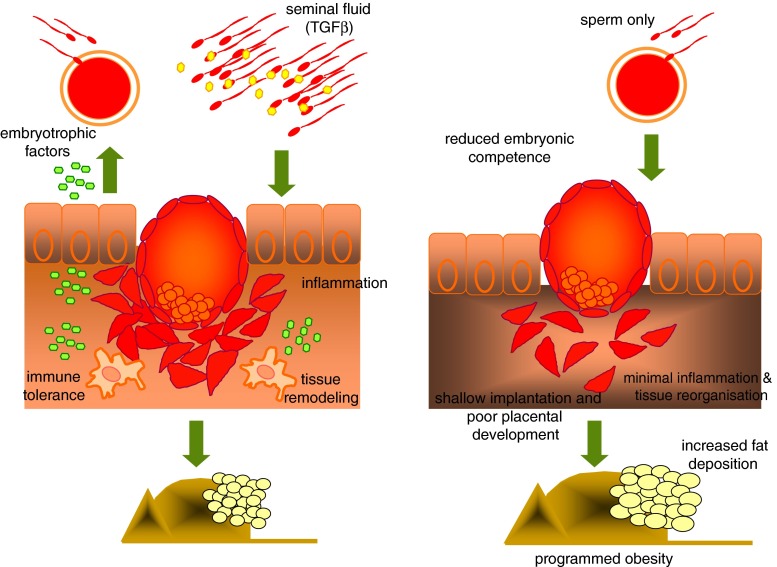Fig. 1.
Schematic representation of the early events following insemination. Seminal fluid components interact with the endometrial epithelium to produce embryotrophic factors to support embryonic development, and cytokines and chemokines to initiate an acute inflammatory reaction. Infiltration of leukocytes and antigen presenting cells follow to initiate the immune response for successful pregnancy establishment and tissue remodelling for embryo implantation. All of these events are critical to the establishment and maintenance of a healthy pregnancy and are initiated by exposure to seminal fluid. The right panel demonstrates our hypothesized series of events leading to altered pregnancy outcomes in the absence of seminal fluid. An absence of seminal fluid induced inflammation reduces the production of embryothrophic factors, immunological tolerance toward the conceptus, minimal tissue remodelling to facilitate implantation and placental development. These factors combined result in compromised foetal programming and development of adult metabolic syndrome

